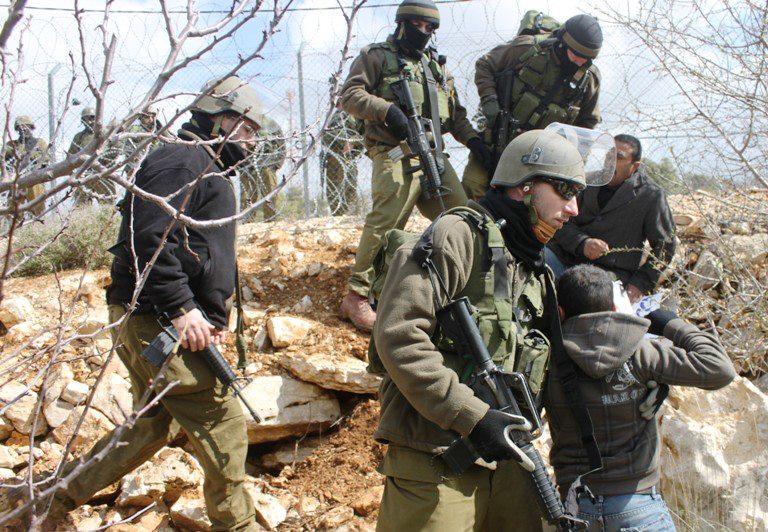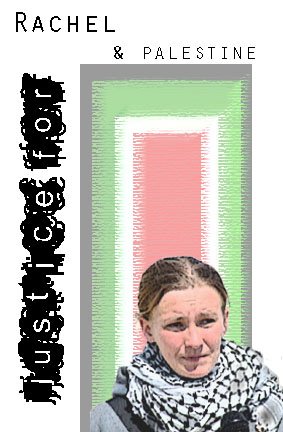Tag: Rachel Corrie
-
In photos: Beit Ommar weekly protest
by Younes Arar 17 March 2012 | Beit Ommar Popular Committee The Beit Ommar Popular Committee organized today’s weekly peaceful protest adjacent to Karmei Tzur colony built on the stolen land of Beit Ommar farmers. When we arrived next to the so called security fence surrounding the colony, more than 60 heavily armed Israeli occupation…
-
In memory of a hero: Rachel speaks truth
16 March 2012 | International Solidarity Movement On the anniversary of Rachel Corrie’s martyrdom today, the rain fell in quiet tears that watered Palestine in a confusing emotion of remorse and yet optimism—the same optimism we hear in the voice of Rachel’s diaries and actions. It rained on Kufr Qaddoum where attack dogs clenched in…
-
National Building Museum cancels Caterpillar Inc. award ceremony!
7 September 2011 | Rachel Corrie Foundation for Peace and Justice ACT NOW: Stop Rewarding Complicity in Human Rights Abuses Altogether! Due to help and pressure from individuals and social justice groups across the country, the National Building Museum has informed us that it has canceled the public award ceremony to present Caterpillar Inc. with…


